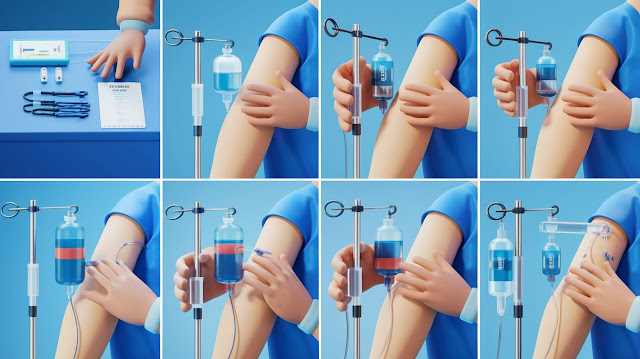
1. Vital Signs Monitoring Blood Pressure:
* Regular monitoring helps detect hypertension or hypotension.
Heart Rate:
* Keeping track of your pulse can indicate heart health.Respiratory Rate: Observing breathing patterns can reveal respiratory issues.
Temperature:
* Monitoring for fever or infection.
2. Blood Glucose Levels Especially important for diabetics, monitoring blood sugar levels can help manage and control diabetes.
3. Oxygen Saturation (SpO2)Using a pulse oximeter to check oxygen levels in the blood, particularly important for individuals with respiratory issues.
4. Weight and BMI Regular weighing helps track any unexplained weight loss or gain, which could indicate underlying health issues.
5. Basic Blood Test Some homecare providers offer kits for basic blood tests, such as cholesterol, hemoglobin, or thyroid levels.
6. Medication Review Ensure all medications are being taken as prescribed and check for any potential interactions or side effects.
7. Diet and Nutrition CheckA review of your diet to ensure you are meeting nutritional needs, especially if you have specific dietary restrictions.
8. Mental Health Check Regular assessments to monitor mood, stress, and overall mental well-being.
9. Mobility and Physical Function Assessing mobility, balance, and strength to prevent falls and maintain physical function.
10. Routine Eye and Hearing Checks Basic vision and hearing tests can be done to catch any early signs of deterioration.Benefits of Homecare Health Check-ups:Convenience: Done in the comfort of your home.
Cost-Effective:
May save on transportation and clinic fees.Preventive Care: Early detection of potential health issues.Personalized Care: Tailored to your specific health needs








 August 14, 2024
August 14, 2024
